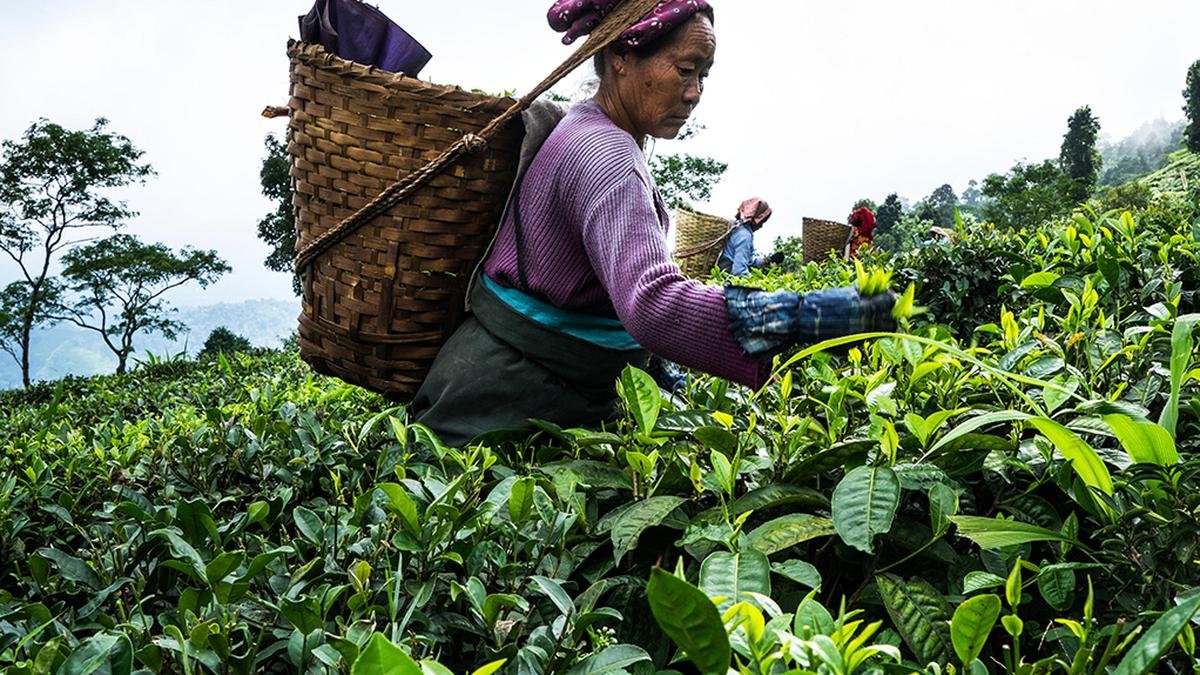Darjeeling tea prices firm up at auctions on fears over supply shortage


Darjeeling tea prices rise as landslides devastate plantations, impacting supply and causing concern for industry’s future
Darjeeling tea prices are firming up at auctions as concerns over possible constraints on the supply of the world-famous aromatic tea loom large after planters got a massive setback due to the recent devastating landslides following relentless rainfall in the hills.
Twenty-seven of as many as 71 operational gardens have been impacted, with thousands of tea bushes washed away due to the natural calamity that struck the hills on October 4 and 5, which caused one of the worst landslides in a decade.
Over 459 landslides were recorded in Darjeeling district, killing at least 21 people, some of them are tea garden workers. The widespread devastation caused major damage to the infrastructure and roads in the hills.
Premium crop hit
According to tea growers, the need of the hour is to make the internal roads within the gardens motorable as workers are unable to report for work in the severely affected regions. For some of the planters, tea stocks at their estates got damaged due to the floods, while for some of the growers coal stocks are running out, which are required extensively for processing tea leaves.
In a letter written to West Bengal Chief Minister Mamata Banerjee on Monday, Darjeeling Tea Association chairman BK Saria said, “You are aware of the natural calamity that struck North Bengal area on October 4 and 5, which wreaked havoc in the lives of the resident/workers within the tea gardens of Darjeeling hills giving employment to 55,000 workers.”
According to the association, eight gardens in Mirik, seven gardens in Rongbong valley and 12 gardens in Darjeeling area have been affected.
For the Darjeeling tea industry, the premium autumn crop, which is around 15-20 per cent of the annual production of the brew in the hills, were totally washed out due to the rainfall and landslides.
“Our members earnestly request your support and the necessary help of the administration for the affected people of Darjeeling Tea Industry to overcome the difficulties and losses of this magnitude and to restore normalcy for functioning of the affected tea gardens and the surrounding areas,” Saria said in his letter to the Chief Minister.
Amid concerns over possible supply constraints of the world-famous Darjeeling tea, the first product to receive a geographical indication (GI) tag in India, the prices are firming up at the Kolkata auction centre, the only centre where Darjeeling tea is sold.
In the last auctions (sale number 41) at the Kolkata auction centre, held last week, average price of Darjeeling leaf rose to ₹468.35 per kg compared to ₹447.74 per kg at the auctions (sale number 39) held in September-end, per data from Tea Board and NSEIT.
Supply concerns
Notably, sale number 40 was not held due to Durga Puja holidays.
“Darjeeling tea prices have increased during the last sale at the Kolkata auction centre. For the last sale (sale number 41), and the sales for tomorrow (sale number 42 scheduled on Tuesday) and for the next week (sale number 43 scheduled on October 24), teas had arrived in Kolkata from the hills before the heavy rain,” Calcutta Tea Traders Association secretary Kalyan Sundaram told businessline.
But, concern remains over the sufficient availability of Darjeeling teas for the auctions, scheduled to be held on October 29 (sale number 44).
“For the October 29 sale, we will see what is the quantity of teas coming by tomorrow for the auctions. Usually auction catalog contains around 60,000-65,000 kg of teas for sales for this time of the year. Up to now, around 15,000 kg have come for this sale. Let us wait, because now the arrival of teas from Darjeeling is dependent on vehicle movements,” Sundaram said.
Facing another low
What gives a grave concern to all of the planters in the hills is whether this year’s total production of the brew falls below last year’s level, when the output had fallen below 6 million kg, and it could be the lowest output ever in recent history.
“Production has been badly hit due to the devastation. There are so many gardens where bushes were washed away. Around 200 hectares of crop has been damaged. Workers’ houses have been damaged to a large extent. So, what plucking can they do? For this year, only one-and-half months remain now for production,” Rajesh Kanoria, vice chairman of Darjeeling Tea Association and owner of Lopchu Tea Estate, told businessline.
Notably, for the January-August period this year Darjeeling tea production stood at 3.59 million kg against 4.06 million kg for the same period last year, according to Tea Board India data.
Darjeeling tea industry has long been reeling under financial crisis as production has been hit by climate change, labour issues, lower productivity and profitability. Facing financial crises, many planters have sold gardens in recent years.
Published on October 13, 2025



